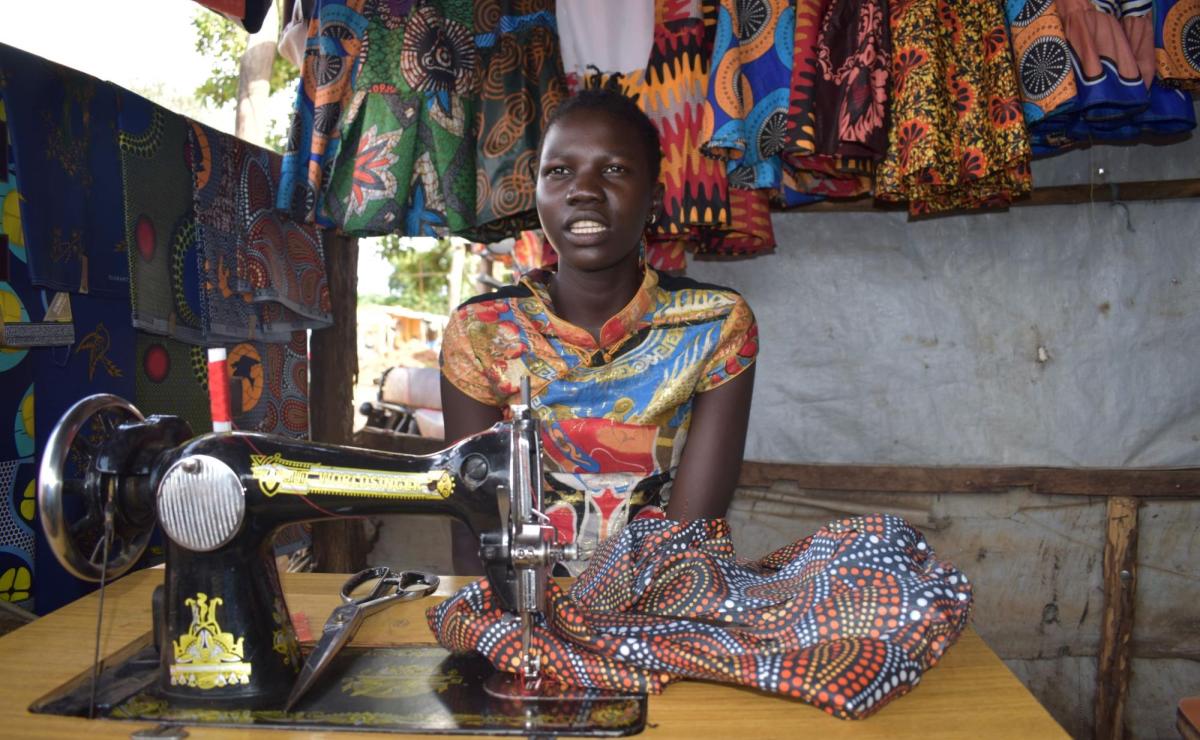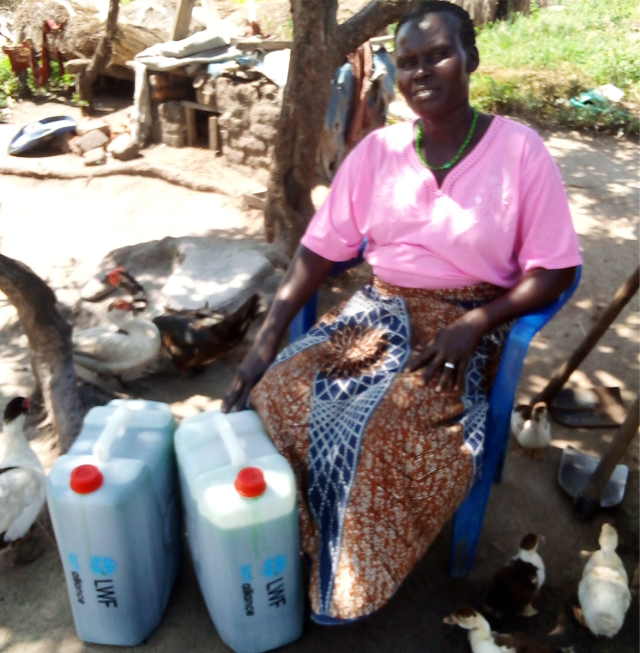Vocational skills tailoring refugees to self-reliance

Hosting over 40,000 refugees, majorly from South Sudan, the Palebek settlement in Northern Uganda, like others, has refugees operating several small income-generating activities aimed at economic self-reliance. These activities include hairdressing, tailoring, mobile money transfer, and foodstuff.
Thanks to the generous national policy that permits the refugees to work, cultivate the land, and move around freely. However, the skills gap denies many refugees the ability to explore this opportunity. That is the dilemma that 22-year-old Beatrice Achomo faced four years back when she arrived in Uganda. Achomo was hopeless until she acquired the tailoring skills under the Reconnecting Lives, Vision, and Empowerment (ReLiVE) project. With funding from the Bureau of Population, Refugees, and Migration (PRM), the humanitarian bureau of the State Department, LWF Uganda implements the project in Northern Uganda's Palabek, Adjumani, Palorinya settlements and Kyangwali settlement in the South Western region.
“I now have an income to look after my younger siblings and I,” Achomo says while smiling ear to ear. Achomo owns a design and tailoring makeshift shop in one of the trading centres. She buys and sews African fabrics into various fashions. “Sometimes I also get particular orders from the customers," Achomo explains, adding that she also does basic tailoring to fix clothes daily.
“My business is worth Shs800,000(about $206) as of now,” she reveals.
During the first phase, beneficiaries like Achomo received vocational skills to sustain their livelihoods and participate in the economic life even when they return to their countries.
“We also received sewing machines and materials as start-up kits,” she says. “I used it to start a small workshop here. I was doing basic tailoring, but I had bigger dreams.”
The project renewed funding in September 2021 not only launched phase II of the interventions and paved the way for sustaining skills equipped in the first phase but also fulfilled Achomo's dreams.
“I received a Shs1,000,000 (about $258) conditional grant to expand my business," she recollects with pleasure. “I am grateful to our funders because I used it to buy more fabrics and grew my business to where it is now,” Achomo notes.
Sewing through the multiple layers of one of the fabrics, Achomo continues to reveal how the skills have turned around her life. At only 17 years, she dodged several bullets with her two younger siblings to reach Uganda.
Achomo lost her parents in the war and witnessed the murder of many of her relatives. With hardly any skills and parentage, running to Uganda only saved her from bullets but not suffering.
“Our foster parents were the only hope we had, “she says.” However, they were equally vulnerable."
To date, Achomo has moved in and can only think bigger regardless of where fate takes her.
“I want to start a tailoring school to help other girls just the way I have benefitted,” Achomo speaks confidently.
Happy and not vulnerable again, many other women girls like Achomo, including survivors of gender-based violence, have gained similar skills and now have control over strategic life choices.
Women and girls' safe spaces
The project established safe spaces where women and girls report protection concerns, access information, and receive training in vocational skills.
Rose Akongo, a 38-year-old South Sudanese also residing in the Palabek settlement, is one such beneficiary who has found peace in the RELiVE project interventions. Her husband resorted to excessive alcoholism after losing all his wealth to the war in South Sudan.

“He became very wild and battered me all the time,” she narrates. “He was different from the responsible man I had known in South Sudan,” Akongo adds.
Through a friend, Akongo learnt about the safe spaces where she trained in liquid soap making besides the psychosocial support she received as a gender-based Violence survivor.
“We received raw materials for making liquid soap and started selling it to both individuals, suppliers and even to the local organisations as a group,” Akongo states. From the profits they make as a group, she has started a similar business on the side that she operates independently and can provide for the family's basic needs.
“My husband has also started having respect for me,” Akongo reveals the other benefits of economic empowerment.
As an empowerment strategy to sustain their businesses, the project has trained both Achomo and Akongo in financial literacy and built their capacity to identify other vulnerable women and girls, and counsel and train them in similar skills. The two have joined other beneficiaries in the Village Savings and Loan Associations (VSLA) to save and secure low-interest loans to expand their businesses.
-END-

